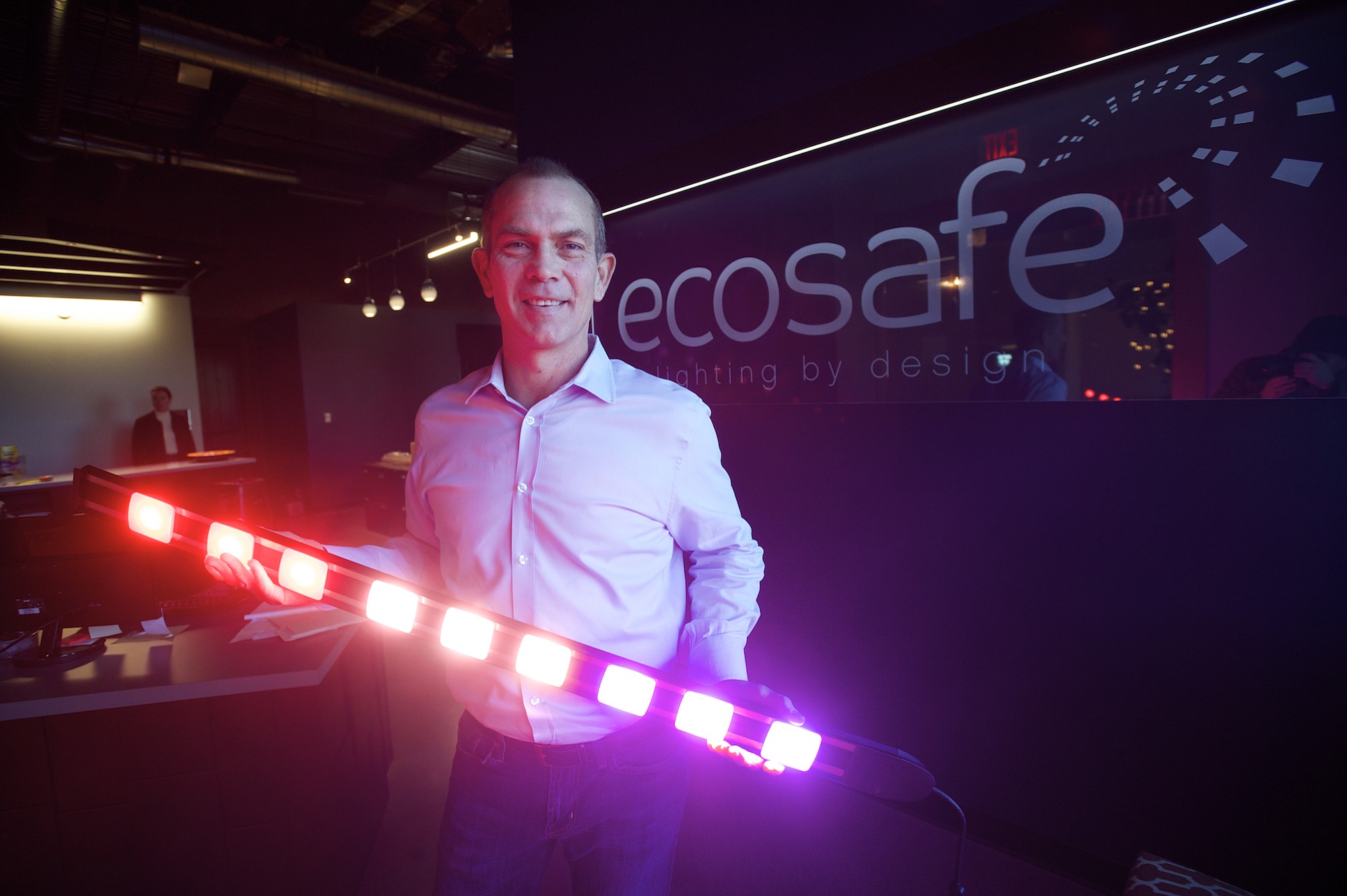Two years after shocking Clark County’s political world with his early exit from the Legislature, former state senator Joe Zarelli is making a surprising foray into the recreational marijuana industry.
In 2012, Zarelli’s 17th year as a lawmaker, the Ridgefield Republican had firmly cemented his place among the leaders of the Senate. By then, he’d already spent nearly a decade as the party’s principal budget architect. Then, that spring, Zarelli astonished friends and foes alike by abruptly resigning in the middle of his term to pursue a different, unspecified career.
Shortly after, he quietly began forging a new life by building EcoGrow Lighting, a subsidiary of Camas-based EcoSafe Technologies, a consultant for energy-efficient lighting design in public and private sector offices. EcoGrow manufactures colorful LED grow lights for a variety of indoor farmers. And Zarelli, who sees recreational marijuana producers as the company’s key growth sector in the coming years, plans to expand sales of his products throughout Washington, Oregon and Alaska.
Few would have predicted Zarelli’s new life as EcoGrow’s managing director after he initially opposed recreational marijuana. But two years after voting against Initiative 502, Zarelli said he’s impressed with the marijuana business community.
“What I’m seeing is actually a cleaner system, where the people that are getting into it tend to be business-minded,” he said. “I mean, it’s legal. It’s no different than a pharmacist who sells drugs over the counter in my mind now.”
Outside the Legislature, Zarelli has more than 25 years of business experience in security consulting, land development and other ventures. In 2010, the Association of Washington Business gave him the Jim Matson Award, which recognizes legislators for consistently supporting employers and the state’s competitive business climate.
Sliding his hand down a magnetic rail that holds the lights in place and transmits an electrical current into the bulbs — called pucks — Zarelli details the versatility of his product, which emits a range of red and purple light.
“A lot of time and energy and money have gone into figuring out light spectrum color,” he said. “This red is mostly important in flowering, the deep red spectrum. When it comes to cannabis, this is critical.”
So far, the lights are already in use at two Washington pot farms — Agrijuana, in Battle Ground, and Tropic Grow, in Sequim. A number of other commercial marijuana growers are testing the lights in small samples before putting them to work in their facilities.
The company has steered away from the smaller-scale growers of the Colorado market, focusing instead on larger commercial marijuana farms in the Northwest.
Zarelli sees LED lights as the future of agriculture as more farmers run out of open land and expand their crops indoors with vertical grows. Though the bulk of the recreational marijuana industry still uses alternatives to LED lights, Zarelli sees growers adopting his product for the potential cost savings.
“Our thinking is it’s going to be real hard long-term to support a commercial cannabis industry that grows with traditional lighting,” he said. “You have this green kind of product that takes a tremendous amount of energy to grow it the traditional way.”
For marijuana, the lights have produced nearly the same harvesting yields as traditional metal halide and high-pressure sodium grow lights, said Bradey Day, EcoGrow’s director of sales and marketing. But they use only a fraction of the electricity, Day said.
Nonetheless, selling growers on the potential benefits of LED lights hasn’t been easy, he said.
“LED has kind of always been the dream of everybody with growing, but the problem has been that yields were not good,” Day said. “So, it’s been kind of an uphill battle in that way, trying to convince people that the LED light actually works and produces quality yields.”
EcoGrow designed an entire lighting system for Agrijuana, which began using the lights this summer. Zarelli believes the results of the large-scale grower’s first harvest — produced about a month ago — will quash concerns about the deficiencies of LED lighting.
“The results have been tremendous,” he said. “You have all the naysayers, especially in the cannabis world, talk about traditional lighting versus LED and does it work. We put that all to rest with this.”
EcroGrow’s lights are also different from most traditional LED grow lights, which come in a box fixture. With traditional LEDs, everything is wired in, Zarelli said.
When a light burns out, you may have to ship the whole fixture out for maintenance or replacement. But with the EcoGrow lights, simply replace the puck and leave the rail in place.
“You’ve got no interruption to your growing operation,” he said. “You just put the new puck on.”




